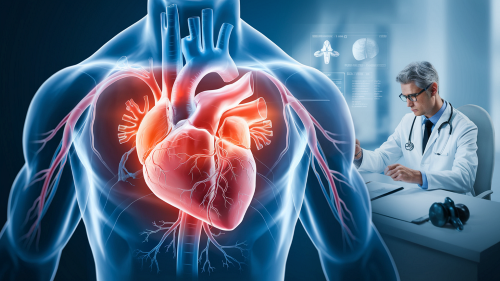The Silent Signals Your Heart Might Be Ignoring: These 2 Blood Tests Matter More Than You Think

The Silent Signals Your Heart Might Be Ignoring: These 2 Blood Tests Matter More Than You Think
In a healthcare system that often focuses on what’s visible, these two markers shine light on what’s hidden and could be life-saving if checked in time.
When it comes to heart health, most people keep an eye on cholesterol and blood pressure. But two lesser-known markers, homocysteine and C-reactive protein (CRP) could reveal life-threatening risks long before traditional tests do.
What Is Homocysteine?
Homocysteine may sound like just another biochemical name, but it plays a serious role in cardiovascular risk. It’s an amino acid produced when the body digests protein, typically broken down into harmless substances with the help of vitamins B6, B12, and folic acid.
But when homocysteine levels rise, the trouble begins. Elevated levels can irritate the inner lining of blood vessels, promoting plaque formation and blood clots both primary causes of heart attacks and strokes. In fact, a major review showed that high homocysteine is associated with a 1.7 times higher risk of cardiovascular events.
Yet, despite its importance, homocysteine is rarely checked in routine screenings, often leaving patients unaware of a significant risk factor.
CRP: The Inflammation Alarm
Meanwhile, C-reactive protein (CRP) produced by the liver, is the body’s early-warning signal for inflammation. Unlike acute inflammation from injuries, CRP can signal chronic, low-grade inflammation deep within blood vessels, even without symptoms.
This is especially dangerous in heart disease, where arteries may look clear, yet tiny inflamed patches on vessel walls can rupture unexpectedly, leading to sudden clots and cardiac events.
The high-sensitivity CRP (hs-CRP) test is more refined and can detect even subtle increases, making it a powerful tool for predicting heart attacks, even in people with normal cholesterol.
A landmark study found that individuals with high CRP levels had twice the risk of a future heart attack, even when their cholesterol was well-managed.
A Complete Picture of Risk
Doctors often reassure patients when cholesterol and blood pressure are within normal limits. But heart disease doesn’t always shout, it whispers. Fatigue, dizziness, or a strong family history of cardiac issues may warrant a deeper look.
Homocysteine and hs-CRP testing could fill critical gaps in risk assessment, potentially catching red flags years before a major cardiac event occurs.











